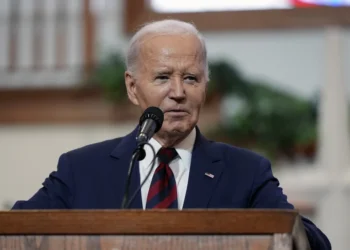It may be that a little bit of the sunlight of reality is starting to peek through the ideological leftist clouds filling the minds of the European Union’s commitment to the dubious climate change-motivated goal of net-zero carbon emissions.
The EU and its 27 countries have set 2035 as the date when all new car sales must be carbon emissions neutral. Yet in what amounts to a kicking the can move, the EU has moved its intermediate target deadline, which was to go into effect this year, back two years to 2027.
Now, European automakers will have more wiggle room to meet the eventual fleet manufacturing emissions standards without facing steep fines. Companies now have an additional two years to meet compliance.
However, the truth is the EU is simply painting lipstick on its net-zero pig.
Brussels knows that net-zero is a pie-in-the-sky pipe dream, and the closer those target dates come, the more of these changes one can expect to see, even as the EU will repeat that it is not abandoning its ultimate net-zero goal.
In truth, the move by the EU’s European Commission was less about accepting the reality that the net-zero target was economically untenable and more about political concerns on the ground.
Recent elections across Europe have shown a continued rise in populism and a growing popularity of right-wing politicians. Like Donald Trump, these politicians are campaigning on ending the EU’s foolish net-zero mandate.
Automakers, in turn, are wrangling with the net-zero-based restrictions and have lobbied for their relaxation. Julia Poliscanova, senior director for vehicles at green NGO Transport & Environment, rues this change. “Give the car industry an inch and they’ll take a mile,” she huffed. “Before the ink was dry on the automotive plan, there were calls for technology openness.”
If Europe wants to remain competitive, it had better get off its zero-carbon fixation, with Trump actively pulling the U.S. out of this climate alarmist economic death spiral.
The free market, wherein consumers are free to choose the products that work best for them, rather than governments dictating what they are allowed to buy, will lead to advances in technology faster than any regulation can artificially force.
European lawmakers are keenly aware of China’s threat, with its massive EV production flooding the market and undercutting Europe’s auto industry. If the EU were to hold unbendingly to its original net-zero targets, the pressure to bring in lower-cost Chinese-made EVs or at least China-based supplies to meet these goals could prove economically disastrous.
The auto industry accounts for some 7% of the EU’s GDP. Trump’s tariffs have only exacerbated the situation. While EU leadership is vowing to stick to the plan, some EU country leaders, like Italy’s Prime Minister Giorgia Meloni, are calling the 2035 target “ideological madness,” which she is seeking to “correct.”
European Automobile Manufacturers’ Association director general Sigrid de Vries agrees. The transition to emissions-free cars “is not going to plan,” de Vries noted. “The idea that if you simply prescribe rules, it will all happen — it’s just too simply put. That realization is starting to sink in.”
What is clear is that EU leaders view an EV-only future as inevitable. Thus, they are handicapping future development as their thinking is too narrow and too ideologically constrained to a dubious narrative.

















